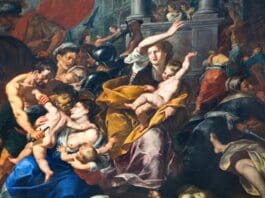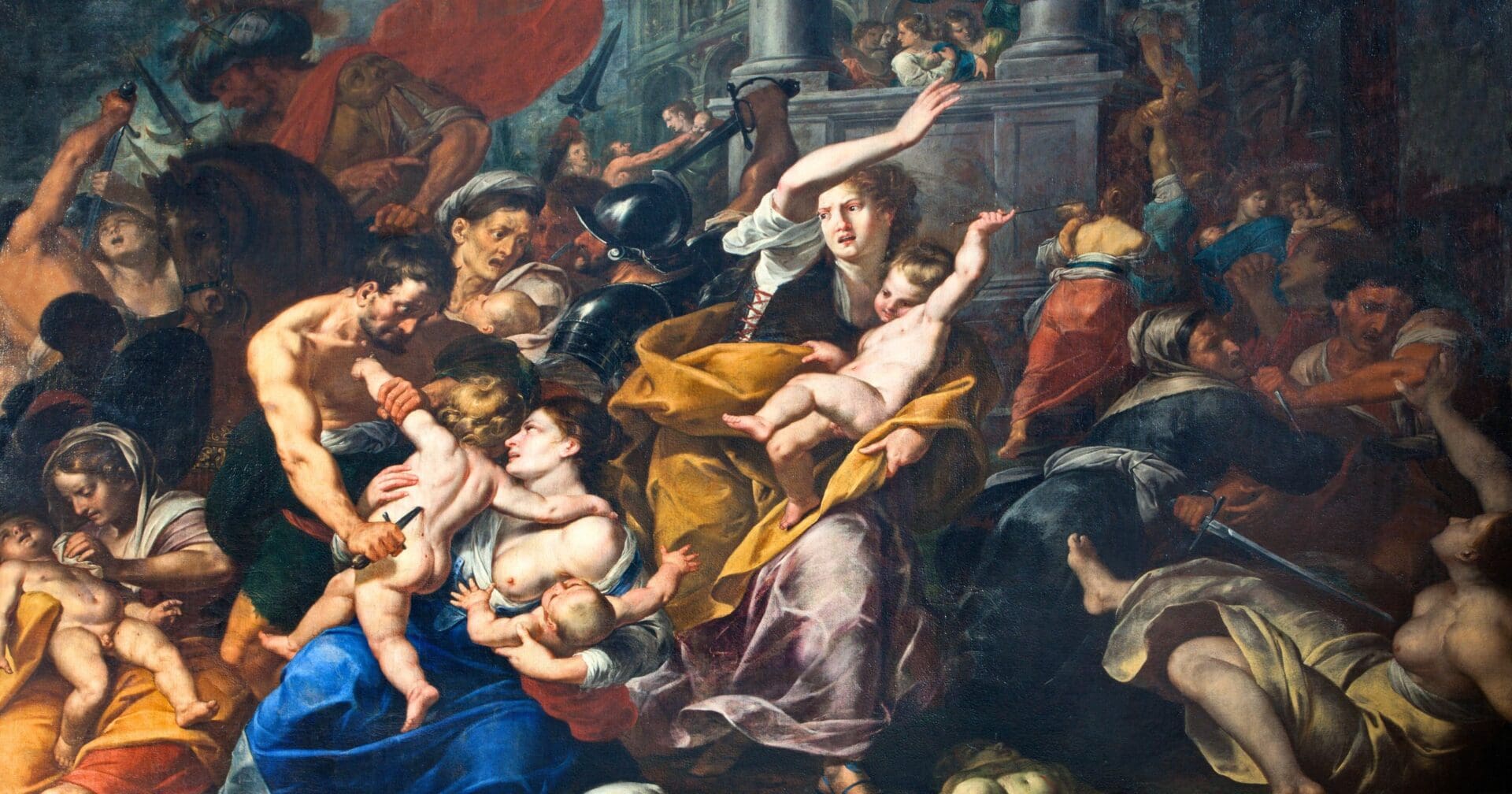
Herod “the Great,” the king of Judea, was a deeply controversial figure. His rule was marked by his close ties with the Romans and a lack of religious commitment, factors that made him deeply unpopular among his people. This unpopularity bred insecurity and fear in Herod, making him intensely protective of his power. His reign was characterized by political cunning and extreme brutality. Among his many ruthless acts, he is known for the murder of several members of his own family, including his wife, brother, and the husbands of his sister.
The story of Herod’s most infamous atrocity is recounted in Matthew 2:1-18. When astrologers from the east came searching for the “newborn king of the Jews,” having been guided by a star, Herod was deeply troubled. These astrologers were informed that the Jewish Scriptures pointed to Bethlehem as the birthplace of the Messiah. In a deceitful move, Herod asked them to inform him of the child’s location under the pretense of paying homage. However, the astrologers, having been divinely warned, did not return to Herod. They found Jesus, presented their gifts, and then avoided Herod, allowing Jesus and his family to escape to Egypt.
Enraged by this, Herod ordered a horrific massacre, commanding the killing of all boys in Bethlehem and its surrounding areas who were two years old and under. This tragic event brought immense suffering and grief to the families involved. Matthew 2:18 describes the agony of this moment, drawing a parallel with an earlier tragedy in Jewish history where Rachel, the wife of Jacob, mourned for her children during the Assyrian captivity.
The massacre of the Holy Innocents, as it came to be known, stands out as a particularly brutal episode, even when compared to the genocides and widespread atrocities of our times. The tragedy underscores the immense value of human life, a treasure that, according to Christian belief, is graced by the sacrifice and resurrection of Jesus Christ. Even if the number of innocent lives lost in Bethlehem was small compared to modern tragedies, each life is seen as infinitely precious, a unique person destined for eternity.
Editorial credit: Renata Sedmakova / Shutterstock.com
The post Feast of the Holy Innocents appeared first on uCatholic.
Daily Reading
Feast of the Holy Family of Jesus, Mary and Joseph
Reading I Sir 3:2-6, 12-14 God sets a father in honor over his children; a mother’s authority he confirms over her sons. Whoever honors his father atones for sins,…
Daily Meditation
We Still Grieve the Holy Innocents
Click here for daily readings Today in the Gospel of Matthew we not only read about one of the most faithful men in the Bible, but we read about one…




